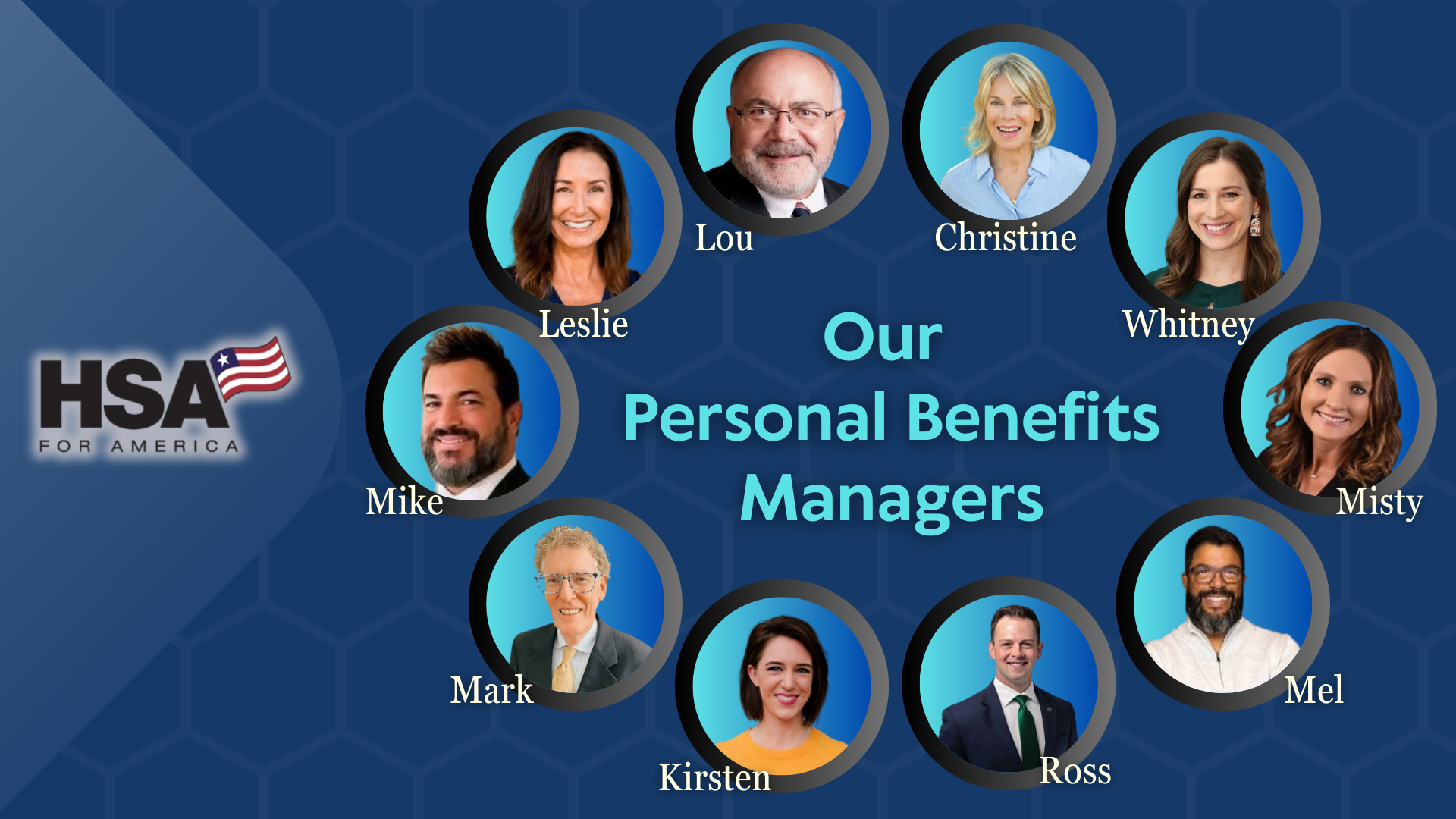The good news is that you can, in fact, use money from a health savings account (HSA) to buy sunglasses – as long as your doctor recommends or prescribes them to treat or prevent a specific medical condition.

For example:
- Your doctor recommends you wear sunglasses to prevent or delay development of cataracts or macular degeneration
- Your doctor recommends sunglasses due to light sensitivity
- Your doctor recommends special glasses for color blindness.
- Your doctor recommends blue-blocking glasses at night to help treat a sleep disorder.
As long as your doctor prescribes sunglasses to treat or prevent a specific medical condition, it will be a qualified HSA medical expense.
Similar rules apply for flexible spending accounts (FSAs) and for Medicare patients with certain Medicare Advantage plans called Medical Savings Accounts (MSAs).
What Types of Sunglasses Can I Use My HSA For?
If you have a prescription, you can use your HSA or FSA money to buy any of these types of eyewear, tax free:
- Prescription eyeglasses
- Reading glasses
- Bifocals
- Frames (without lenses)
- Prescription sunglasses
- Contact lenses
- Cleaning solutions
- Sports goggles
- Safety goggles
- Sports masks
HSA Exclusions for Sunglasses
You can’t use your HSA or FSA to pay for:
- Nonprescription sunglasses that just make you look cool
- Colored contact lenses that don’t correct vision
- Insurance or warranties for glasses or frames
- Polarized lenses for better fishing
The sunglasses have to be recommended for a specific medical condition. Sunglasses worn just for cosmetic or general wellness purposes won’t count as a qualified HSA medical expense.
When you purchase sunglasses using money from an HSA, it is a good idea to write the medical reason down, and keep it with your receipt. That way you’ll always have the information in case you are audited.
Compare Pricing on the Best HSA Plans Available
About HSAs
Health savings accounts are special tax-advantaged savings accounts that allow you to pay for medical expenses with pre-tax dollars.
If you are covered under a qualified high-deductible health plan (HDHP), you can contribute up to $3850 to a health savings account, as of 2023.
If your plan covers your family, rather than just yourself, you can contribute up to $7,750 per year.
Individuals who have an HSA and are age 55 or older can contribute an extra $1,000 annually in “catch-up” contributions.
You have until Tax Day (normally April 15th) to make your contributions for the previous tax year.
How HSAs and High Deductible Health Plans Save Money
HDHPs require you to take on a higher deductible. That means you’re taking on more of the financial risk for your health care. As of 2023, the minimum deductible for qualifying high deductible health plans for individual plans is $1,500 per year, while the minimum deductible for family plans is $3,000.
That means you must pay at least these amounts for health care before your health insurance plan will begin to pay benefits.
But in exchange, you’ll pay a much lower monthly premium. You can take some or all of the savings and direct it to your health savings account – pre-tax.
After a few years of contributing the maximum allowed to your HSA, you’ll have a substantial amount in your HSA available to cover out-of-pocket costs like deductibles and copays.
As of 2023, the maximum annual out-of-pocket cost you will face using a high-deductible health plan is $7,500 for individual plans, and $17,500 for family plans. By federal law, your high-deductible health plan must pay 100% of your medical costs above these amounts in any given year.
If you combine your HDHP with an HSA, you can pay that deductible, plus other qualified medical expenses, using money you set aside in your tax-free HSA.
So if you have an HDHP and don’t need many health care items and services, you may benefit from a lower monthly premium. If you need more care, you’ll save by using the tax-free money in your HSA to pay for it.
HSAs and Tax Savings
Contributions to HSAs are made with pre-tax dollars.
Money in your HSA grows tax-deferred as long as you leave it in the account. There’s no tax on capital gains, interest, or dividends.
Anything you spend out of your HSA on qualified medical expenses is distributed tax-free. However, if you take money out of your HSA and don’t have a qualified medical expense, you’ll face a penalty of 20% of the entire amount if you’re under age 65.
Unlike most FSA’s, with which they are often confused, HSAs don’t have a “use it or lose it” provision; Any unused balances in your HSA can continue to grow tax-deferred until you reach retirement age.
At that point, the 20% penalty goes away, and you can tap your HSA as you like to supplement retirement income. You just need to pay the income tax on your withdrawals, as you would with a traditional IRA or 401(k) account.
You can only contribute to a health savings account if you are covered under a high-deductible health plan, or HDHP.
Sunglasses as Qualified HSA Medical Expenses
According to the National Eye Institute, sunglasses have a number of medical uses.
For example, sunglasses help shield your eyes from destructive ultraviolet rays, which helps prevent cataracts.
They may also help shield your eyes from “blue light.” This can help prevent macular degeneration, which is the number one cause of blindness within the United States.
Blue light filters are sometimes used to treat insomnia.
Sunglasses also protect the skin around your eyes, which can be sensitive to sunlight, which can cause skin cancer and pterygium, which distorts the curvature of the eyeball and causes astigmatism.
How to Buy Sunglasses Using Your HSA
When you open your HSA, you will normally receive a debit card, which you can use to make purchases up to your account balance. Your balance will include all your unused balances from previous years, plus interest.
When you use your debit card, you’ll also have an itemized record of all your HSA transactions on the card. That will come in very handy when it’s time to file your taxes, because you can potentially avoid thousands of dollars in income taxes.
If you don’t use your debit card, or you’ve moved your HSA assets to a financial institution that doesn’t use them for HSA accounts, you’ll have to take care of that record keeping yourself.
Keep a record of all your transactions, and keep your receipts. You’ll need them in the event the IRS wants to audit you or challenge your transactions.
If you don’t have supporting documents, the IRS could deny your tax benefits. You’ll then have to pay income tax and penalties on the transaction.
How to Choose Prescription HSA Sunglasses
Your Optometrist or ophthalmologist can give you excellent guidance on the specifications you need.
The best sunglasses are those rated with UV400 protection, and that are rated to block out 99% of both UVA and UVB radiation.
Additionally, you should look for lenses that meet the blocking requirement established under ANSI/Z80.3 of the National Standards Institute.
Darker lenses aren’t necessarily better. The coating that actually blocks UV light is usually clear. A lighter lens with the UV coating provides more protection than a dark lens that only has tinting.
How To Save Even More Money on Your HSA-Compatible Health Sharing Plan
Until recently, you couldn’t take advantage of the tremendous saving opportunities of an HSA unless you were enrolled in an ACA-qualified HDHP. That priced a lot of people out of it. But now, it’s finally possible to contribute to an HSA with a healthshare plan!
If you are in good health, and you don’t qualify for a subsidy under the Affordable Care Act, you may be able to save up to 40% or more on your monthly outlays for health insurance by using an HSA-compatible healthsharing plan.
Healthsharing plans are not insurance. They are alternatives to traditional insurance policies, wherein a group of like-minded individuals and families agree to share the medical expenses of those in need.
There’s no open enrollment period to worry about with a heathsharing plan. You can enroll in a healthsharing plan at any time during the year. The disadvantage is that you may have a waiting period before the healthsharing organization will pay for expenses related to pre-existing conditions.
Compare Pricing on the Best HealthShare Plans Available
HSA For America is a nationally-recognized leader in connecting Americans with the very best healthsharing plans in the country. In business for over two decades, HSA For America is one of a very few health insurance brokerages that can help you explore both insurance and non-insurance solutions for yourself, your family, or your small business.
Are you ready to start saving money? Click here for a no-obligation consultation. Or call us at 800-913-0172 for a free, in-depth consultation.



